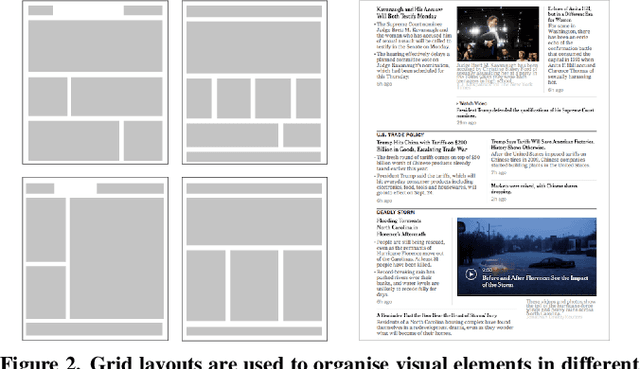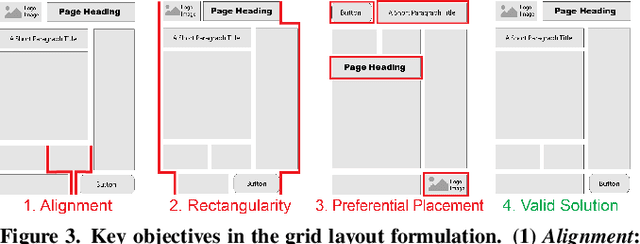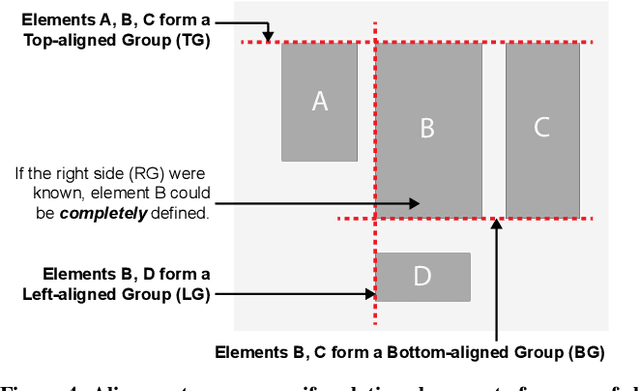GRIDS: Interactive Layout Design with Integer Programming
Paper and Code
Jan 09, 2020



Grid layouts are used by designers to spatially organise user interfaces when sketching and wireframing. However, their design is largely time consuming manual work. This is challenging due to combinatorial explosion and complex objectives, such as alignment, balance, and expectations regarding positions. This paper proposes a novel optimisation approach for the generation of diverse grid-based layouts. Our mixed integer linear programming (MILP) model offers a rigorous yet efficient method for grid generation that ensures packing, alignment, grouping, and preferential positioning of elements. Further, we present techniques for interactive diversification, enhancement, and completion of grid layouts (Figure 1). These capabilities are demonstrated using GRIDS1, a wireframing tool that provides designers with real-time layout suggestions. We report findings from a ratings study (N = 13) and a design study (N = 16), lending evidence for the benefit of computational grid generation during early stages of design.
 Add to Chrome
Add to Chrome Add to Firefox
Add to Firefox Add to Edge
Add to Edge